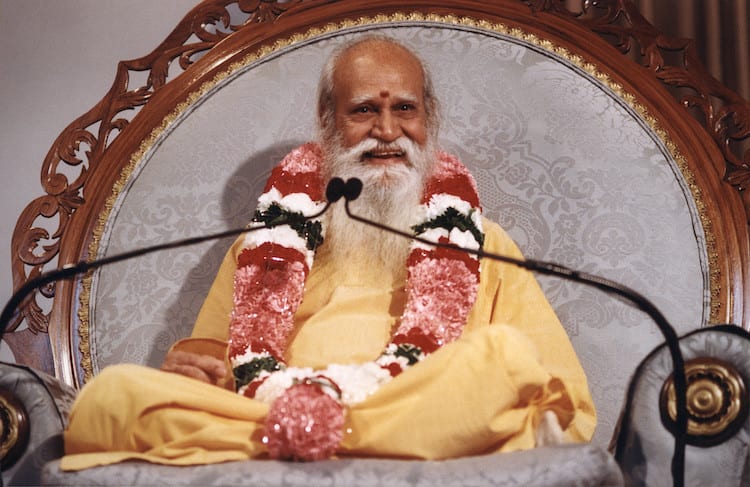The residents of the San Francisco Institute recently decided to practice humility during the month of May. While humility is the hallmark of a sincere spiritual aspirant, it doesn’t get much press. In an age where self-empowerment is synonymous with personal growth, the idea of humbling oneself is decidedly unpopular. It can easily be dismissed as a sign of weakness or as allowing oneself to be pushed around.Understood and practiced correctly, humility is an essential part of spiritual growth. It is letting go of the need to be right, and the effort to defend ourselves and making space for the truth, whether or not the truth is in agreement with what we want. For example, no real communication can happen without accepting the possible validity of another person’s point of view. Then even when we disagree, we have allowed ourselves to be touched by another person’s perspective.
We humans, like all animals, make an instinctual effort to achieve some mastery over our lives in order to survive. Things like securing a home and a livelihood depend upon asserting ourselves enough to achieve success. A healthy self-esteem serves us in accomplishing these basic goals, but will lead us astray if we then identify our success in life completely with this ability to control the world around us.It is just as important to realize that there are ways in which we cannot control the outcomes of our efforts. It is our happiness does not have to depend on events conforming to our plans. We can put tremendous effort into building our dream house or getting the perfect job only to have a hurricane or a stormy boss take it away in a matter of minutes.
Real mastery requires not only the courage to try, but also the courage to accept being unsuccessful, without losing the ability to learn and adjust. This is where humility comes in – it is exactly the virtue that allows us to accept what comes or to see that we are making a mistake. Then, instead of being lost in disappointment over that mistake, we can move onward with a new lesson to guide future efforts. The serenity prayer of St. Francis beautifully expresses this need for a balance of courage and humility: “God grant me the serenity to accept the things I cannot change, the courage to change the things I can, and the wisdom to know the difference.” This serenity is born from humility – the ability to know that we, our bodies and minds, have limitations, and that we are powerless over some things. A posture of humility then opens the door for wisdom, that truth that is available when our hearts and minds become quiet enough to listen, allowing them to be guided by spiritual principles that reside in the depths of our being. We can develop humility in a number of ways.
In a yoga class, we can practice with the clear intention to listen and accept the body’s capacity in each asana without wanting it to be better or to impress others. When we meditate, we consciously affirm an effort to quiet the mind so that deeper wisdom can express itself. Thus, we acknowledge the limitations of the mind and the need to keep it in its place. During daily life, we can cultivate the belief that each challenge that befalls us is an opportunity to learn. Even when we feel hurt by someone else, we can learn to focus more on our own part in the problem.
Sri Gurudev often taught that when we make a fist and point a finger to blame someone else, there are three fingers pointing back at us. It can be a powerful experience to apologize and see how the other person’s heart also softens, and caring communication can take place. Some people will not respond to our efforts, but we can be at peace in our own hearts, knowing we did all we could. Of course, we will struggle with this practice and get lost in our pride numerous times. But even a small success with accepting the truth comes as great relief from the pain and tension of trying to live up to a false image and closing our hearts in defense of that image. When we begin to live with a little more humility, everything we experience becomes an opportunity to learn, to discover something. Like in the well-known Buddhist story, we become an empty cup that is ready to receive. All the saints and sages tell us that that there is much more to receive than we can imagine.



